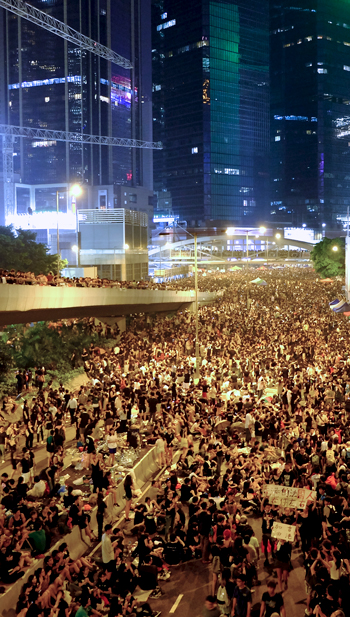Hong Kong protests and travel risk update for IMA clients
IMA Global Risk & Benefits points out the risks involved when travelling to Hong Kong and offers advice on what to do if your travel plans must take you there:

Over recent weeks, ongoing unrest in Hong Kong has resulted in significant business opportunity and travel disruption. The local protests have eroded confidence in the territory being a safe and reliable global hub for business. Most travel advisors still consider Hong Kong to be a LOW security risk country; however, heightened security awareness and flexible itineraries are now advised.
Large scale protests over the extradition bill have been ongoing since June. Frequency of demonstrations have been increasing, with gatherings occurring on an almost daily basis throughout August, impacting all types of transportation.
The police have been employing more aggressive means of dispersal, such as rubber bullets and tear gas, and have been known to utilize non-lethal tools in close proximity which can cause fatalities. Although U.S. nationals have not been targeted, the risk of incidental violence persists on protest days.
While travel to Hong Kong can continue, we advise additional precautionary measures that you can take to ensure the health, safety and security of employees travelling to and working in Hong Kong.
Advice to travelers to Hong Kong
Travel to Hong Kong can continue. Flexible itineraries should be maintained due to transportation services disruption.
- Monitor local developments regarding the ongoing unrest via social media, local new outlets, and local internet forums, like the LIHKG forum.
- Routes should be planned to bypass the vicinity of planned protest locations, and flashpoints for unrest.
- DO NOT stop, watch, film or take photographs of protests. This may increase your risk of violence. Civilians, journalists and bystanders have all been targeted or indirectly impacted in previous protests.
- In the event of encountering a potentially hostile demonstration, remove yourself from the area and return to a secure accommodation or office location.
- Black and white clothing have both been associated with protesters and counter-protesters; it’s advisable to refrain from wearing these colors on protest days.
- Limit carrying any items that may give the impression to the authorities that you are involved in protests; this includes masks, hard hats and umbrellas.
- Refrain from political discussion in public and making statements on social media.
- If you need to travel through protest locations for essential purposes, the MTR (train) is likely to be a better option as opposed to over-ground transport. However, be aware that MTR services have been disrupted previously. On protest days, these services may be particularly affected. Airport Express services may also be impacted on days when protests are due to be held at Hong Kong International Airport [HKG].
- Maintain a low profile and avoid overt displays of wealth. Leave non-essential valuables in your hotel safe, or avoid bringing them into the country at all.
- Remain aware of your surroundings, especially when using the public transportation system or in high congestion areas such as tourist attractions.
- Abide by all official directives issued by the relevant local authorities. Take note of warnings issued by the Hong Kong Observatory (HKO) and the type of signal issued. The HKO issues typhoon warnings an average of about six times a year and has uses this reliable notification and advanced monitoring system for other communications.
- Businesses and facilities are expected to close when a Typhoon Signal 8 or above is issued. The highest risk period for typhoons in Hong Kong runs from July to September.
